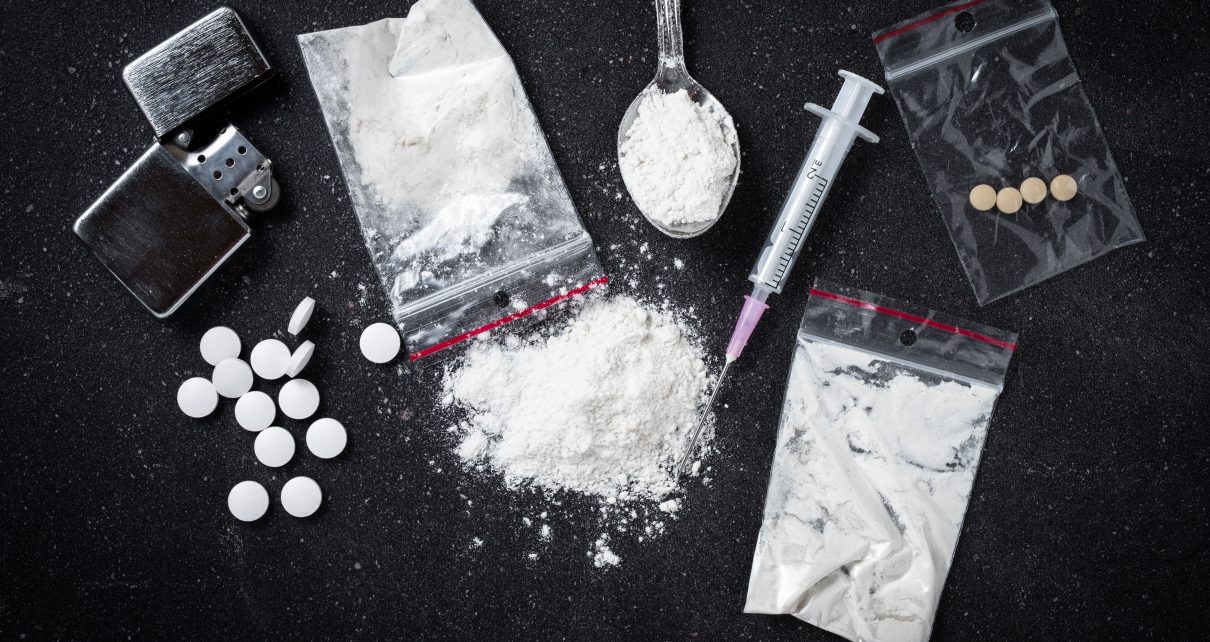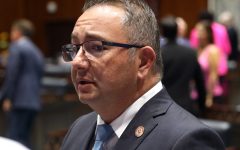
The addiction crisis in Arizona reflects dependence on both illegal and prescription narcotics. (Photo: Leszek Czerwonka, Shutterstock)
Why I’m Fighting for Victims of Arizona’s Opioid Crisis
Addiction crisis not a partisan issue, writes LD2 candidate
By Ari Bradshaw, July 26, 2024 3:00 pm
In response to the opioid epidemic, Arizona declared a public health emergency in 2017 and passed the Arizona Opioid Epidemic Act in 2018, even as national opioid deaths increased 30% from 2019-2020 and 15% from 2020-2021. More than five people die every single day from opioid overdoses in Arizona, and countless families and communities have been devastated by the effects of opioids and related synthetic drugs.
The opioid crisis is personal to me. When I was thirteen, I lost my father to suicide when he shot himself in front of me and my sister, following years of addiction to prescription opioids. My father was a professional snowboarder in his 20s but didn’t participate much in the sport throughout his late 30s. When he tried to do some of the same tricks he had accomplished in his 20s, he fell, nearly died and wound up breaking many ribs. His doctors began giving him opioids, and eventually, he was passed to a doctor who overprescribed him. My memories of my father in his later years saw him becoming increasingly detached and unable to live life to the fullest. After my father’s death, the doctor who overprescribed him was sentenced to nearly a decade in prison as around a dozen of his patients either overdosed or killed themselves under his supervision.
My cousin died of a heroin overdose shortly after. She was in her early 20s. Over 150 lbs of illicitly trafficked heroin are seized every month by U.S. Customs and Border Patrol. The people who are dying of these drugs are our brothers, sisters, fathers, mothers, cousins, friends, and community members. My family is one of countless families across Arizona that have experienced tragic loss as a result of the opioid epidemic. It doesn’t matter if the damage hits through legal prescription drugs or the illegal narcotics trafficked across the border – opioids are destroying our communities.
While discussing this issue, we must be careful not to demonize those who are prescribed opioids and rely upon them for legitimate and serious use. There are some situations where the best medical course of action is to administer opioids or related substances. These situations are completely different from the abuse, trafficking, and damage caused by the over-prescription of opioids and the trafficking of drugs like heroin and fentanyl.
The pharmaceutical industry will pay more than $1.14 billion to Arizona over the next 18 years for the purpose of opioid treatment, addiction prevention, and education under the One Arizona Agreement. We have already received over $1 billion from this agreement. In the 2024 budget, our local politicians gutted these opioid settlement funds to pay for Arizona’s Department of Corrections to the tune of $75 million in the current fiscal year and $40 million annually until the 2027 fiscal year. Governor Hobbs claims that this money will be used to help people in the prison system who are impacted by the opioid crisis.
Lawmakers on both sides of the aisle are doubtful – with Democratic State Senator Christine Marsh stating, “the fact that it now isn’t being used blatantly and explicitly to save lives is very troubling” and Republican State Representative Matt Gress stating, “this year’s [budget] seems more focused on ‘getting it done’ than ‘doing it right.’” As a Republican, I agree with Attorney General Kris Mayes that these funds should have been off-limits. If elected to the State House this November, I will fight to ensure that we are making actual efforts to combat the opioid epidemic instead of stripping away resources from one of the few areas where we are actually doing something.
The U.S. Supreme Court blocked a bankruptcy deal with OxyCotin maker Purdue Pharma around the same time that Attorney General Kris Mayes dropped a lawsuit against Governor Katie Hobbs. Purdue Pharma would have been liable for potentially billions, which would have helped states fight the opioid epidemic.
We must also take a serious look at the illegal drugs coming through our border. Drug dealers who sell fentanyl and heroin are cruel merchants of death who ought to face a lifetime in prison and be systematically taken off the streets. With nearly 1,400 lbs of fentanyl seized each month by U.S. Customs and Border Patrol, we are experiencing nearly record-high levels of trafficking for this deadly drug. Arizona must invest in serious resources to crack down both on hard drugs coming across the border and on those who choose to engage in the distribution of said drugs.
Additionally, the justice system ought to extend mandatory minimums on fentanyl and heroin-related crimes while funding law enforcement and other first responders in high-risk areas. My friend Senator Shawnna Bolick was recently the leader in pushing a concurrent resolution that will provide for life imprisonment for an individual who is convicted of sex trafficking of a child. This will be on your ballot as Proposition 313. At the federal level, we need to follow the laws we have on the books and stop both illegal drug and human trafficking.
My father didn’t have to shoot himself. My cousin didn’t have to overdose. We need to invest in community resources that help those who are facing addiction get help and see a light at the end of the tunnel. We must expand access to rehabilitation services, empower more organizations in the rehab process, and create a pathway to the labor force for those who have fallen out of it due to addiction.
Naloxone should be widely available and accessible, and the state should expand access to mental health and alternative medical care. Substances like psilocybin, which have already shown results for patients with depression, tobacco addiction, and alcohol addiction, are currently undergoing trials in Wisconsin to understand if they can also help individuals fight opioid addiction. This year, a bill to legalize psilocybin for research and medical use in Arizona, SB1570, passed with a bipartisan supermajority in both chambers before being blocked by Katie Hobbs. Because she pocket-vetoed the bill, the legislature could not try for a veto override. Additionally, the state should unequivocally support the Right to Try for those facing terminal illnesses and should expand it as far as possible to everyday Arizona citizens. The opioid crisis is not a political or partisan issue but a human one. For too long, we have enacted policy after policy on the opioid crisis while it becomes worse around us. The legislature should make data-driven decisions to address the crisis without political rhetoric. We must work to secure our border, incentivize the pharmaceutical industry to shift away from opioids and offer serious solutions to those facing addiction.
The people of Arizona deserve local leaders who focus on our local communities. I am the only candidate running for State House in LD2 from Arizona. The people throughout North Phoenix know that I will always defend their interests above the interests of any lobbying firm or national political party.
- Why I’m Fighting for Victims of Arizona’s Opioid Crisis - July 26, 2024
- What Is Biden’s Case to American Jews? - May 16, 2024
- GOP Breathes Easier as No Consensus Challenger Emerges in CD1 - November 13, 2023




